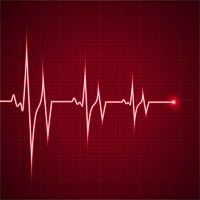Article
E-Alerts New Tool in Heart Failure Referral
Author(s):
Time is important in getting patients with advanced heart failure (HF) to appropriate care. In a new study, a Utah research team reports on a new electronic approach.

Time is important in getting patients with advanced heart failure (HF) to appropriate care. In a study to be presented in a poster session Saturday, March 14 at the American College of Cardiology meeting in San Diego, a Utah team reports on a new approach.
Deborah Budge, MD and colleagues at Intermountain Heart Institute in Murray, Utah use electronic alerting to identify patients who might benefit from advanced HF therapies.
When patients are found to have an ejection fraction of less than 35% on echocardiograms at the system’s hospitals and clinics, that finding triggers algorithms created for left ventricle assistive device therapy (LVAD), heart transplant, implantable cardiac defibrillator, and cardiac resynchronization therapy.
Appropriate physicians are instantly notified so they can follow up with these patients.
During a 30-day testing period Budge got e-alerts whenever such a patient was found.
Of 87 prompts she received, 47 indicated patients were eligible for implantable defibrillators, 9 for cardiac resynchronization, and 31 for heart transplant or LVAD.
The prompts were not always accurate: 84% of outpatients who triggered alerts were properly classified but that was the case for only 57% of the inpatients. Budge said the main reason for the errors in the inpatient group was the fact that 37% were newly diagnosed as heart failure patients.
The researchers used 2013 American Heart Association criteria to guide screening and referrals.
Her conclusion is that “real-time electronic alerting can be used to identify eligible patients for advanced heart failure therapies,” and that these alerts can improve patient outcomes, including saving lives.





